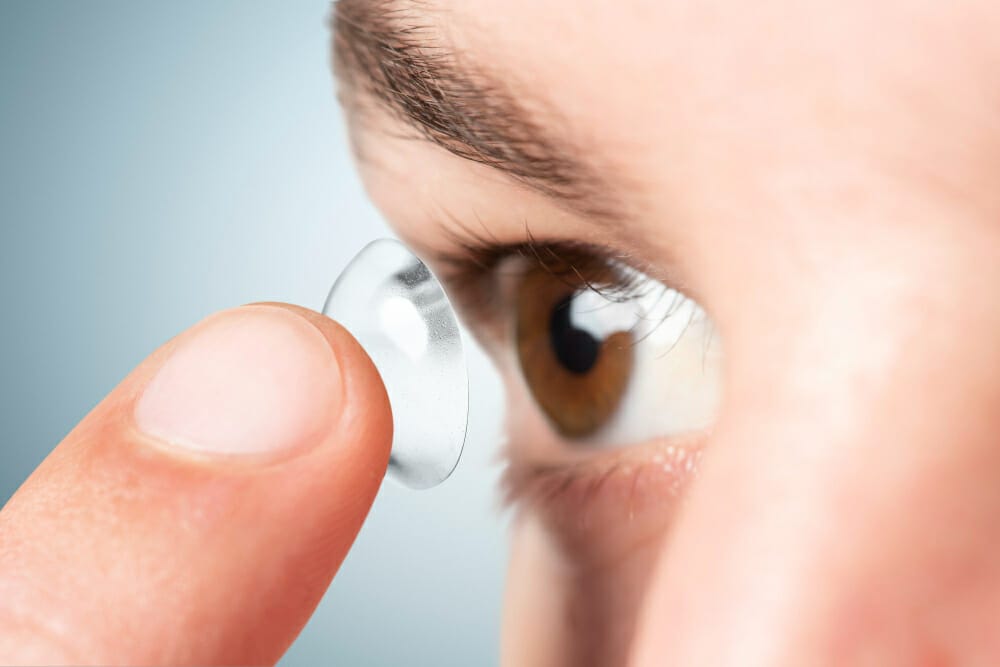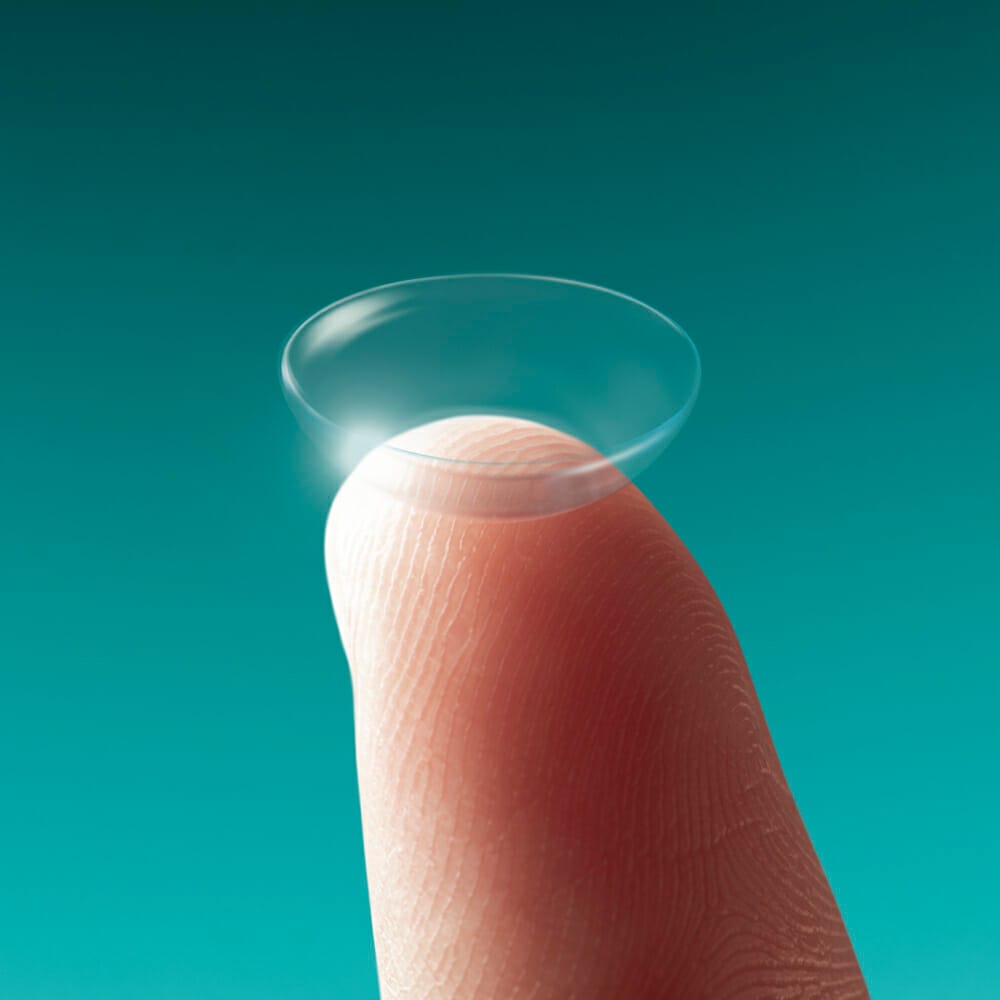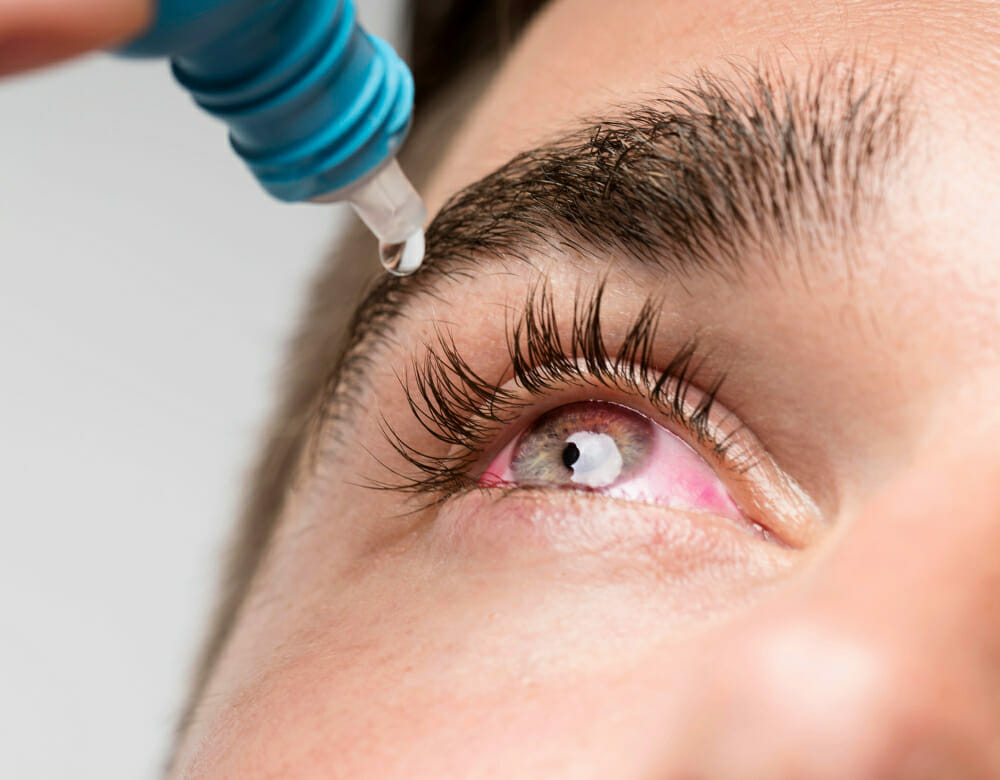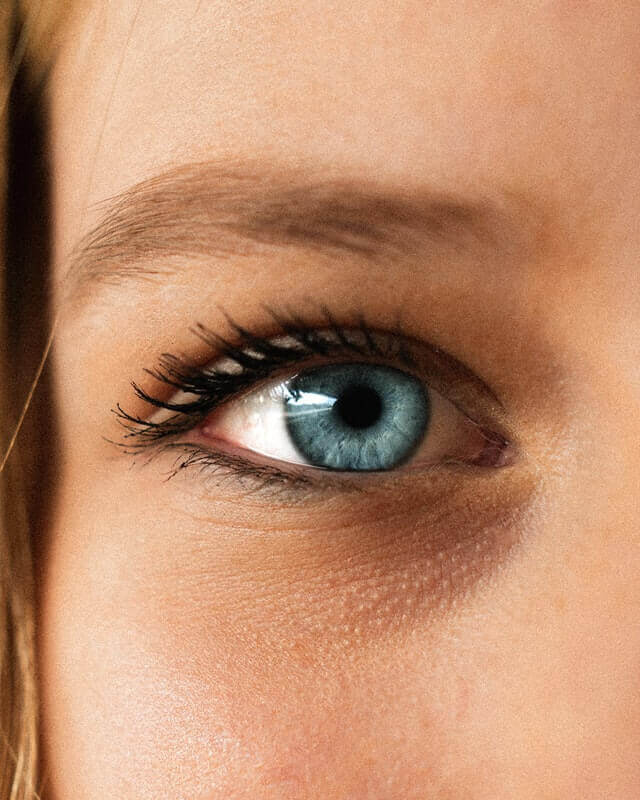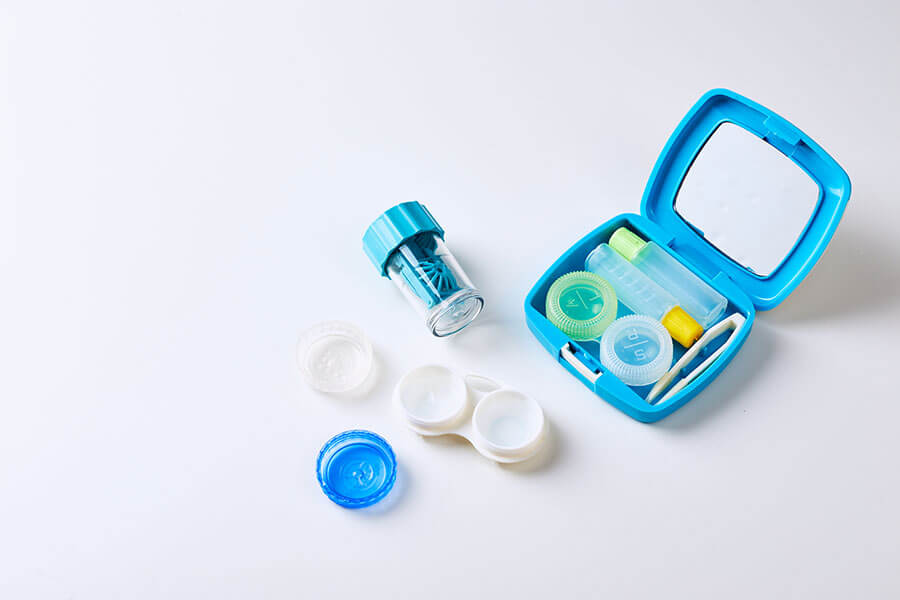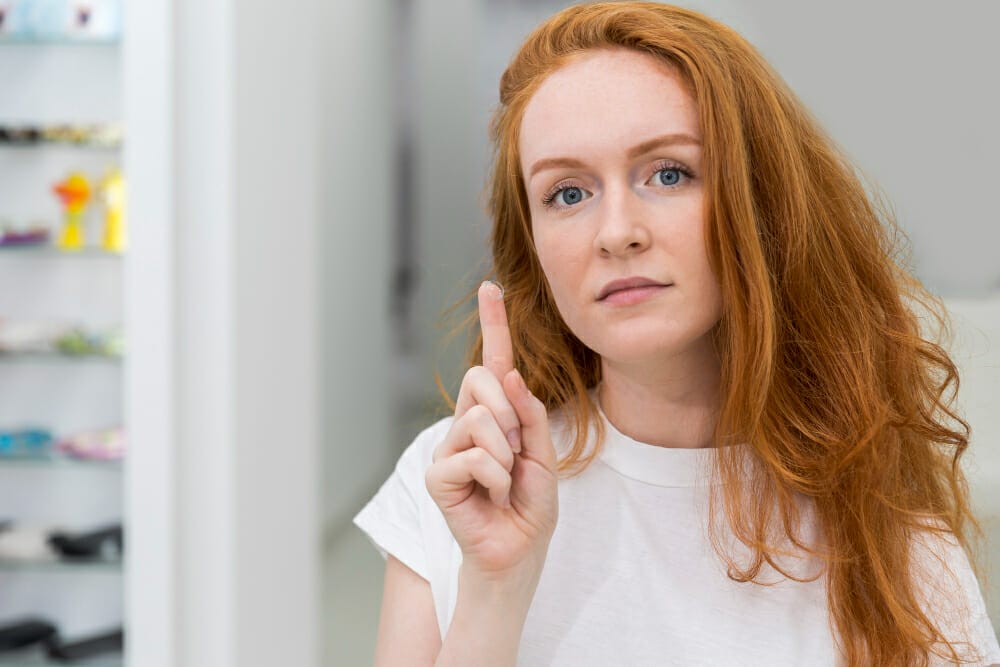Orthokeratology
Orthokeratology, or othro-k) lenses are specially designed to be worn only while you sleep. While asleep, they reshape the front of the eyes, correcting refractive errors so you can see during the day without the need to wear contacts or glasses. Since, with ortho-k lenses, you are only wearing them at home, at night, there is less likelihood of them causing dry eye symptoms. Learn more about ortho-k lenses.
Contact Lens Solution Options
We recommend scheduling an evaluation to discuss the possibility that your contact lens solution may be causing your symptoms. It's also suggested to bring your current contact lens solution to your appointment for further examination.
Sometimes, people develop sensitivity to the preservatives in contact lens solution, and can experience dry eye symptoms because of that. In those cases, the doctor may recommend switching to a preservative free solution, or to use daily disposable contact lenses which do not need to be stored in solution overnight.
Eye Drops
Eye crops, also known as comfort drops, rewetting drops, or artificial tears, can be suggested as a way to treat contact lens-related dry eye. While their effect is temporary, their moisturizing effect on the eyes can alleviate symptoms, and some brands can provide longer-term relief. Learn more about eye drops for dry eye.
If you wish to try this route, it is very important to schedule a consultation to discuss it, so we can provide advice on which eye drops can be used while wearing contacts, and which brand is likely to yield the best results.

